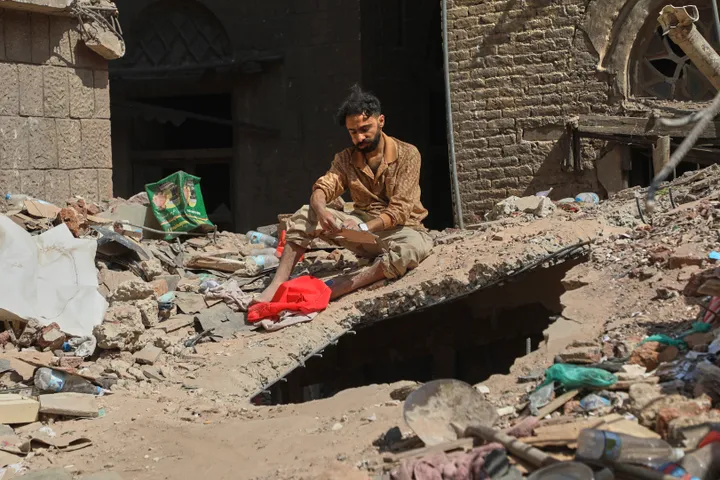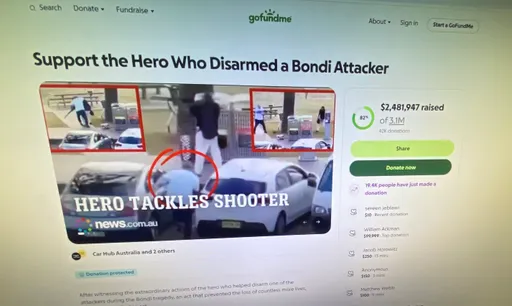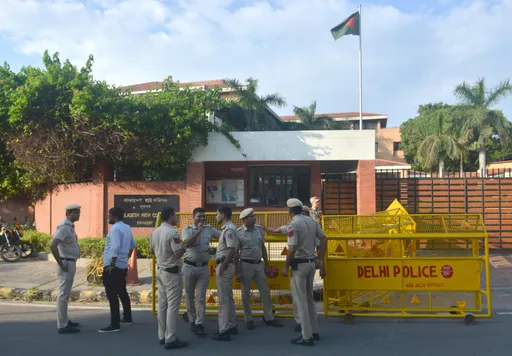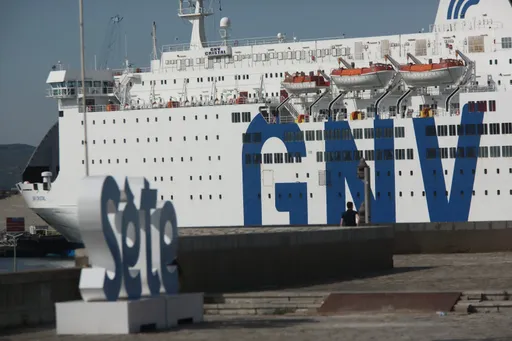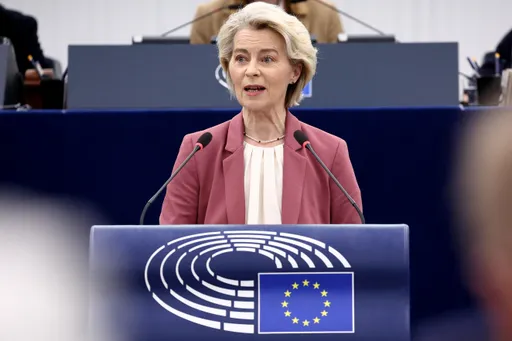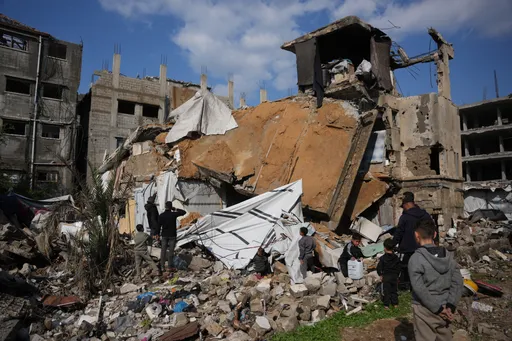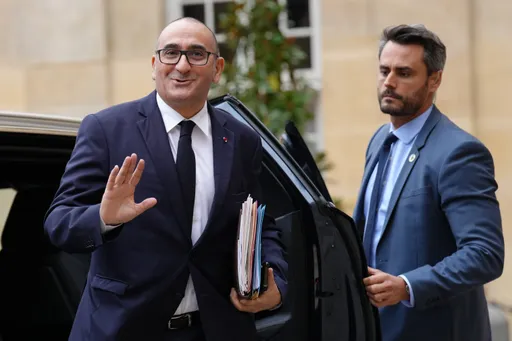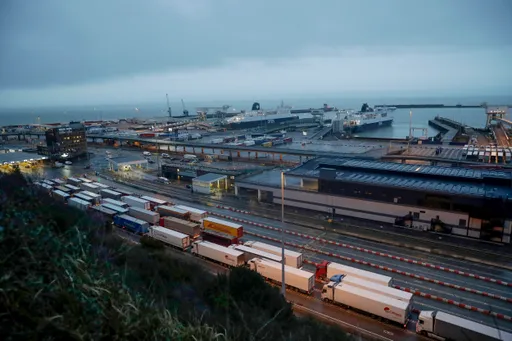HARARE – A week after Zimbabwe’s week-long protests, triggered by a massive fuel price hike, had ended, Jemus Shamamba, 34, and his brother Eric, 24, did not know how to start picking up the pieces of their lives.
The Congolese nationals operate a retail business in Harare’s oldest suburb of Mbare, but everything in their shop was looted by violent protesters.
They were among the hundreds of foreigners operating informal businesses in Zimbabwe whose shops were targeted by the protestors who brought the southern African nation to a standstill for five days a fortnight ago, following the announcement by President Emmerson Mnangagwa that there would be a 150 percent increase in the price of fuel.
“We lost goods worth more than $30,000,” Jemus told TRT World in an interview. “When the attacks started, some of our members went to call the police, but we were told to go back to our countries,” he said, adding that later on when the looting was at its peak, they noticed that even members of the police were participating.
Police spokesperson Charity Charamba refused to answer questions about these claims, as well as the rapeallegations levelled against the police.
“The people came from everywhere, including women and children from the flats around here. They would move from one shop to another breaking and taking everything,” Jemus’ brother Eric added.
It had taken the brothers several years of careful investment to grow the business to that level, having started with virtually nothing.
Sanctifiee Bondo, 31, another refugee from the Democratic Republic of Congo (DRC), whose family operated a wholesale shop in the same area, estimated their loss to be more than $100,000.
“We are now all afraid because of what happened,” Sanctifiee said. “The people that are always smiling at us and buying from our shops suddenly came charging at us, grabbing whatever they could and in no time the shelves were empty,” she said, adding that her family was in quandary as to their next move.
Fabrice Mukamutara, 35, a refugee from Rwanda, who could not estimate the value of the goods he lost, said the level of hostility that they witnessed during the protests revealed the existence of deep-seated resentment beneath the veneer of sunny smiles that the refugees and other foreigners receive from the locals.
“They accused us of causing shortages and increasing prices,” he said. “They said we should go and do it in our own countries,” said a dejected Mukamutara, who has lived in Zimbabwe for the past 13 years, six of which he was confined to the Tongogara refugee camp, some 420 km southeast of the capital, Harare.
“We don’t know what will become of us now,” said Bisimwa Ndongala, 42, also from the DRC. “We cannot approach anyone here for help… we cannot go to our country’s embassy because we are refugees here.”
With the Zimbabwean economy in a total meltdown, resentful locals have of late been increasingly accusing foreigners – mostly refugee populations, particularly those that fled the troubled African Great Lakes nations of Rwanda, the DRC and Burundi – of conniving with powerful politicians to make locals’ lives more difficult. These refugees, some of whom have lived in Zimbabwe for decades, control the small – but powerful – black-market retail sector, the urban public transport sector and other informal businesses like barber shops and the second-hand clothes trade.
When basic commodities started disappearing from mainstream retail chains and citizens started spending hours in long queues, these locally-produced basic goods have always been mysteriously found in abundance in the shops run by refugees.
These are mostly people who fled civil conflicts in their own countries, and after living at the Tongogara refugee camp for many years, have been granted special permission to run businesses in the country. They can only do business, but not seek employment in Zimbabwe, a country already suffering from an unemployment rate of over 90 percent.
Suddenly their hungry hosts have turned against them, and they have become sitting ducks as they cannot return to their countries nor can they leave the country unless the office of the United Nations High Commissioner for Refugees (UNHCR) is satisfied that their lives are in danger once again. These are people who cannot seek any protection from the local embassies of their countries of origin as some of them are considered fugitives from ‘justice’ by their own governments.
Some of the refugees are those that fought wars on the losing side back home and they live a life always looking over their shoulder. The ruling regimes, like those in Rwanda and Burundi, are known to track the most prominent of these refugees for possible assassination. It was possibly because of the fear of drawing unwelcome attention that most of the refugee victims that TRT World talked to were reluctant to share detailed stories of their backgrounds.
The bulk of refugees in Zimbabwe are from the DRC. According to the UNHCR, as of 2017, about 80 percent of the nearly 11,000 refugees at Tongogara camp were from the DRC, while nine percent were from Rwanda Burundi and another eight from Burundi.
The UNHCR’s office did not respond to questions regarding the security of certified refugees in Zimbabwe who fell victim to attacks with a xenophobic slant. In the aftermath of the violence, the UN issued a vague statement that said nothing about the human rights violations, prompting criticism from some civil society organisations.
“The mandate of the UN is to maintain international peace and security and it is ironic that the UN, through its Zimbabwe office, issued a statement at a time when Zimbabwe is in the middle of political hostilities but never mentioned any of the atrocities perpetrated against citizens by the security agencies,” said James Bayanai, Director of the Centre for Human Rights Defenders of Zimbabwe.
“It would have been prudent for the UN to issue a clear and unequivocal statement denouncing shootings, killings and gross rights abuses perpetrated against ordinary Zimbabweans by the state,” Bayanai added.
The government responded to the protests by shutting down the internet before launching a crackdown on citizens suspected of involvement in the protest, a bloody crackdown that was condemned by the Zimbabwe Human Rights Commission and other rights organisations.
However, undeterred by the death of eight people, the injury of nearly 100 and the arrest of more than 1,000 others, organisers of the protests have given the government a 30-day ultimatum to address their concerns or faces worse protests.
Jesuit priest Father Brian McGarry of St Peter’s in Mbare, where most of the refugee victims operate, said that given the high levels of poverty in the neighbourhood, if was not surprising that there exists a sense of resentment among locals, some of whom live on food handouts from his church.
“The living conditions in these flats are very bad, they are inhuman,” he said, adding that the poor in the area – who are among the poorest of the poor in Zimbabwe – are easily used by politicians to do anything.
The refugee business owners’ woes could still worsen. Harare City Council spokesperson Michael Chideme told TRT World that the council will shortly be destroying all illegal structures in a clean-up exercise, with the goal of achieving world class status by 2015.
“Very soon we will be demolishing all illegal structures in the city no matter who they belong to,” Chideme said.


